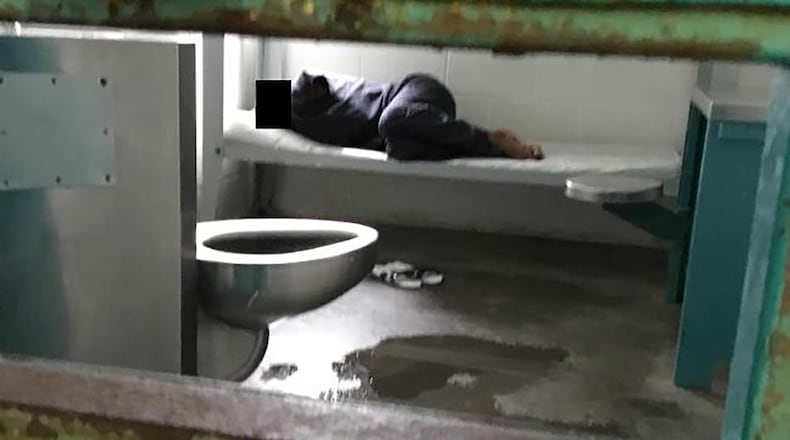A federal judge has approved a settlement that ends litigation that showed mentally ill women were being detained in squalid conditions at the South Fulton Jail.
U.S. District Judge Billy Ray, who said at the close of one court hearing he found the conditions “repulsive,” recently signed an agreement that also calls for the county to pay $1.2 million in legal fees and costs to the attorneys who filed the lawsuit three years ago.
“This settlement should improve the lives of people with serious mental illness who are held in the South Fulton Jail,” said Atteeyah Hollie, deputy director of the Southern Center for Human Rights in Atlanta.
But litigation is not the solution to issues plaguing the jail, Hollie added. “To avoid needless suffering, we must combat our impulse to charge and jail the mentally ill.”
The Southern Center litigated the case with the Georgia Advocacy Office and Caplan Cobb, an Atlanta law firm.
The lawsuit said women with serious mental illnesses were held in isolation 23 hours a day. It also included photographs that showed standing toilet water on the floor, a trail of urine under a cell door, bloody clothes in living areas and feces and blood smeared on the walls.
The settlement calls for the women to be allowed out of their cells four hours a day five days a week. They also will have access to meaningful therapeutic activities and be provided personal hygiene items, clean drinking water and a sufficient supply of clean clothing and underwear. Training will also be given to correctional staff for overseeing the mentally ill.
In a statement, one of the plaintiffs said she hopes the settlement will ensure women will be treated more humanely. Identified only by the initials J.N., she said women at the jail are enjoying the therapeutic activities, such as coloring, yoga, music and dancing.
“When I was in the jail a few years ago, when the jail was dirty and there was nothing to do, the living conditions hurt my mental health,” J.N. said. “I got so tired of being locked in a concrete room all day. It felt like being a bird in a cage that can’t fly anymore. It felt like nobody cared about me.”
About the Author
The Latest
Featured



